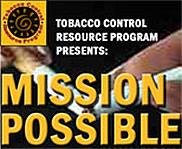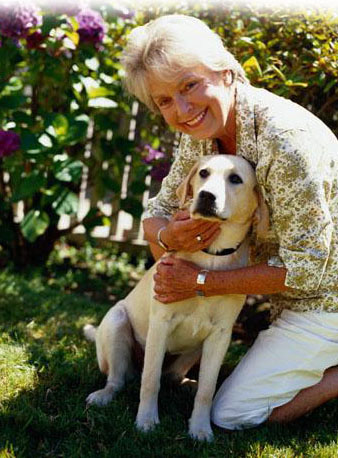SECOND-HAND SMOKE HARMS TO EVEYRY BODY |
|
Second-hand smoke & the pets we love By S. Samantha Bowman from coronado safe foundation Karen Davis sits by the window of her third story apartment hovered in a small corner of the room smoking a cigarette, and thinking about Jack No, she is neither a closet smoker nor an alcoholic, but a pet owner who cares deeply for Jack, her 5-year-old Labrador mix. She has known Jack for his whole life and is concerned about how her secondhand smoke may affect him. Davis, a junior majoring in psychology said, "Secondhand smoke can cause problems fast. I take Jack (to the vet) frequently and he appears to be fine," Janis said. "But they don't do any specific tests to see early signs (of secondhand smoke)." Davis, along with other pet owners, is slowly becoming aware of the effects of secondhand smoke on pets. Studies performed at Colorado State University's Veterinary Teaching Hospital headed by John Reif, helped to bring awareness of secondhand smoke to the public. One such study entitled, "Passive Smoking and Canine Lung Cancer Risk," paints a dramatic picture of the risks associated with second-hand smoke. Dr. James Speir, Director of Coronado's Crown Veterinary Hospital, says, "Everybody knows how smoking affects the smoker, but there is a growing body of scientific and medical evidence that shows just how harmful secondhand smoke really is to the smoker's pets." Providing even more scientific evidence about the deadly effects of second-hand smoke, a new study from Tufts University reports that cats living in homes with smokers are more than twice as likely as other cats to acquire feline lymphoma cancer. In some cases cats were at a higher risk of contracting cancer than humans living in the same home. Cats became exposed by inhaling the smoke or by digesting it when they groomed themselves and lick particulates off their fur, reported Science Daily . Coronado SAFE (Substance Abuse Free Environment) hopes these findings will provide yet another compelling reason to quit smoking, and for the advocacy of stronger anti-smoking legislation. According to the American Lung Association , Dogs that inhale secondhand smoke are three times more likely to develop lung or nasal cancer than dogs living in smoke-free homes. In addition, owners often confuse allergic reactions caused by secondhand smoke such as scratching, biting, and chewing of their skin with fleas or food allergies. Birds too can experience adverse reactions to secondhand smoke and may develop eye problems, as well as other respiratory problems like coughing and wheezing. In addition, birds that sit on a smoker's hand can experience contact dermatitis from the nicotine that remains on the smoker's hand which can cause them to pull out their feathers. Philanthropic organizations are joining the fight along with substance abuse and animal care professionals. PAWS of Coronado (Pacific Animal Welfare Society of Coronado) President, Louise Shirey says, "My hope is that perhaps those who have difficulty quitting for themselves will find the needed inspiration by looking toward their beloved pets. For more information on smoking and resources that will help you or a loved one quit,please contact: • Coronado SAFE (Substance Abuse Free Environment) 619-522-6884, • the American Lung Association , 1-800-LUNG-USA and to QUIT call today • to the California FREE Smoker's Help line to 1-800-NO-BUTTS |
|
Salud+HealthInfo is for information and educational purposes only. You should not rely on this information as a substitute for personal medical attention, diagnosis or hands-on treatment. If you are concerned abut your health or that of a child, please consult your family's physician or health provider immediately and do not try to diagnose yourself. About Us| Privacy Policy | Disclaimer | Contact Us TEL- 619-427-4111 Email-Health@infooption.com |
 info
info

 Daniels.
Daniels.